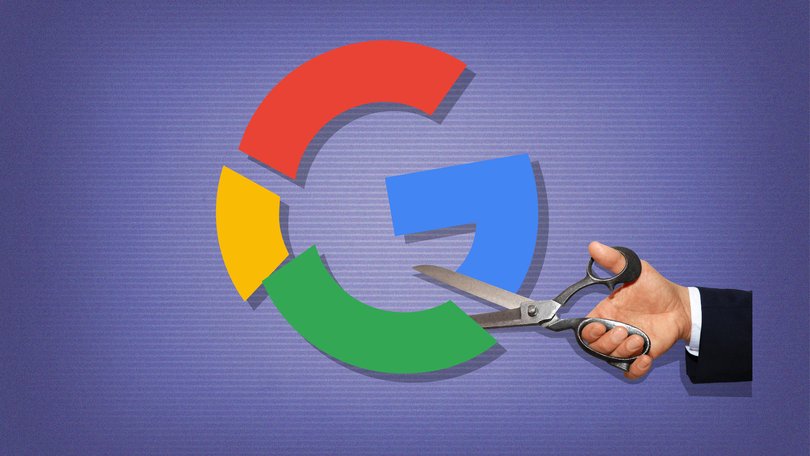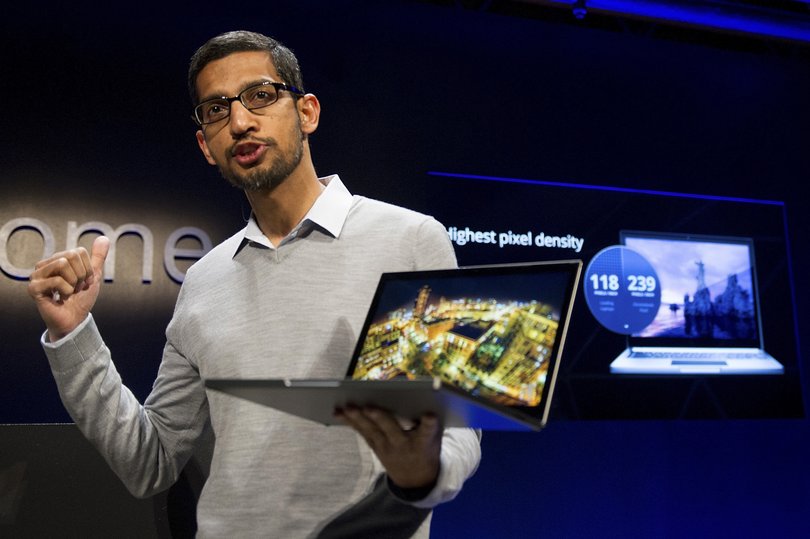THE ECONOMIST: Search for the answer to Google’s monopoly
THE ECONOMIST: In what would be America’s biggest anti-monopolistic act in 25 years, the court could be asked to break up Google — separating the search engine, Chrome browser and Android operating system.

For years shareholders have paid little heed to the thunderbolts hurled at America’s west-coast technology giants by the trust-busting deities of Washington, DC.
No longer. Despite expectations of solidly rising profits, the share price of Alphabet, Google’s parent company, is wobbling.
The reasons seem paradoxical.
Sign up to The Nightly's newsletters.
Get the first look at the digital newspaper, curated daily stories and breaking headlines delivered to your inbox.
By continuing you agree to our Terms and Privacy Policy.On the one hand, an American judge ruled in August that Google’s search business, a source of about 90 per cent of its operating income, was an illegal monopoly.
On the other, investors fear that it could suffer unprecedented competition because of generative artificial intelligence.
On October 8, the Department of Justice is expected to file proposed remedies that aim to redress the sins of the past and prevent future abuse in generative AI.
The DoJ appears eager to make an example of Google.
Jonathan Kanter, the agency’s trust-buster-in-chief, has said the verdict belongs on the “Mount Rushmore” of antitrust cases.
Leaks to the media have suggested he could go as far as asking the court to break up Google by separating its search engine from its Chrome browser and Android operating system.
That would be America’s biggest anti-monopolistic act since an unsuccessful attempt to carve up Microsoft almost 25 years ago.
Amit Mehta, the judge handling the case, is likely to have other considerations. A breakup may be too draconian for him.
The nub of his ruling was that Google benefited from a monopoly on search and text-based advertisements that it furthered through “exclusionary” distribution deals with companies like Apple; Google’s size alone was not the issue.
Moreover, his verdict against Google was based largely on precedents set in the Microsoft trial.
The fact that the decision to break up Microsoft was quashed on appeal has been a deterrent to far-reaching “structural” remedies ever since.
Like Mr Kanter, Mr Mehta appears keen to address not just Google’s market distortions of the past but also to consider how they will play out in the generative AI era.

For that, targeted remedies may be more likely.
An obvious one would be to ban the payments that Google makes for its place as a default search engine on many devices and carriers, which in 2021 came to $26b.
However, that would penalise the recipients of Google’s cash more than Google, even though they were not in the dock.
More likely, Google may be required to continue the payments but without the exclusions.
This, says Mark Shmulik of Bernstein, a broker, could help spur competition, especially when it comes to generative AI.
It would, for instance, give Apple the latitude to direct more searches through OpenAI’s ChatGPT, with which it is shortly due to start an AI partnership called Apple Intelligence.
Further helping rivals, Google could be forced to share some data it relies on to make its search business so powerful, including its huge volume of search queries.
Google considers such data troves its secret sauce; it will argue that making them publicly available raises privacy and security concerns.
But such obligations could be a fillip for firms trying to launch generative AI capabilities to compete with Google, such as Perplexity.
Alphabet has vowed to appeal the verdict and the process may drag on for years.
In the meantime, the going will be tough.
In addition to the illegal use of the default payments, the judge found Google guilty of using its monopoly power to push up the price of text advertisements, which could spur a wave of potentially costly lawsuits from advertisers and rivals.
All this is occurring while the business model of search is changing profoundly.
Generative AI is eroding the power of selling ads based on clicking links.
So far, Google’s ad business has withstood the hit.
But this is a bad time to be distracted by lengthy legal wrangling.
Perhaps it is better to try to settle fast and move on.
